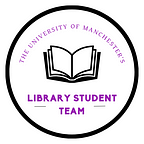Top Ten Tips: Revision Strategies
By Chloe from the Student Team
The exam season is upon us and revising for exams can sometimes feel overwhelming. However, with our top tips you will be able to make the most of your precious revision time, conceptualise your ideas and be left feeling prepared for the upcoming exams.
If you’d rather listen to the top ten tips podcast, you can find it below:
Top Tip 1
Mind maps. They’re a great way to condense and visualise a topic, whilst simultaneously making links between different themes.
Mind maps are a powerful graphic technique to translate your thoughts into a visual picture. This is extremely useful during revision as it allows you or organise and understand information more efficiently.
Top Tip 2
Music. If you’re good at learning song lyrics, choose a song and replace the lyrics with the content you need to remember and memorise the new song!
Revision doesn’t have to be boring! Why not mix up your revision and turn your notes into music? It will help you to look at the content in a different way in addition to making those key facts easier to memorise.
Top Tip 3
Teach someone else. It’s a good way to spot gaps in your knowledge and the person you’re teaching may ask questions that you might not have previously considered.
As well as helping you to spot gaps in your knowledge, teaching the content to others means you have to transfer what you have read into the spoken word. This can help you to better understand material.
Top Tip 4
Test yourself. Think of some exam questions and answer them without your notes. Don’t be afraid to include questions from the areas you find most challenging.
Answering exam questions is a very important skill so practicing it during revision time will mean you feel super prepared when it’s time to take the exam!
Top Tip 6
Draft model answers. Using past papers or other resources to try and anticipate potential questions for the exam and plan out your responses.
What better way to prepare for exam questions than draft your answers? Drafting answers can help you to conceptualise your ideas ready and also help you to identify any potential gaps in your knowledge.
Top Tip 7
Understand the content. Information is hard to remember if it does not make sense, If you have a good understanding of the topic area you will remember it much better.
Many students simply remember content for the exam without understanding it. If you want to score those top marks in the exam, understanding the content is important as it ensures you can apply your knowledge to a range of questions.
Top Tip 8
Make a revision plan. Make a timetable that outlines which topics you will study and how much time you will allocate to them. It’s a great way to monitor your progress.
Making the most of your revision time can be really tricky. Setting a plan at the beginning of the week helps you to set your intentions whilst also giving you a sense of achievement when you hit your targets.
Top Tip 9
Make posters. Use key words and facts- rather than writing out whole sentences. Include images to make the poster more memorable.
Seeing your revision visually can help you remember key information for the exam. Stick your posters up around the house so you can have a quick look at your notes even whilst brushing your teeth in the morning!
Top Tip 10
Rewrite notes in your own words. This will help you to retain information on a topic and this way you can practice explaining a topic like you would in an exam.
Taking key concepts and writing them in your own words is a key skill needed at University. Not only will it help you to get your point across in the exam but it will also help when writing assignments.
